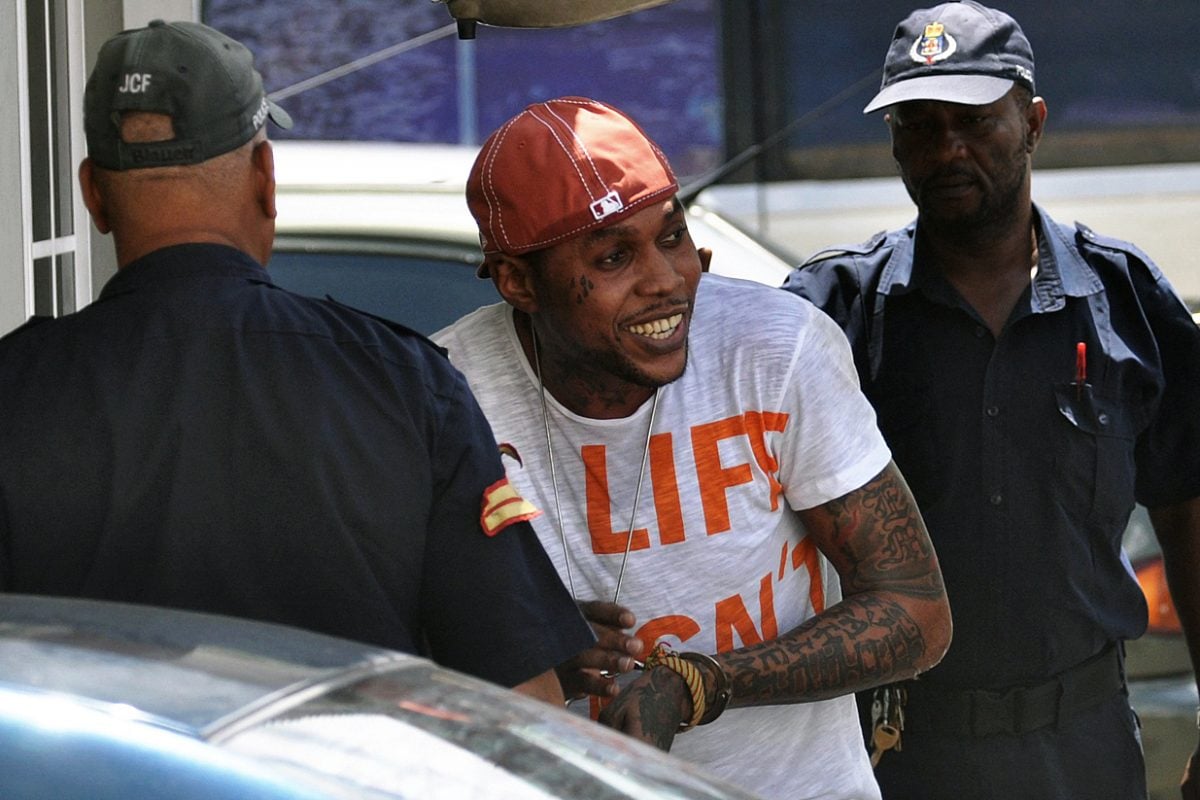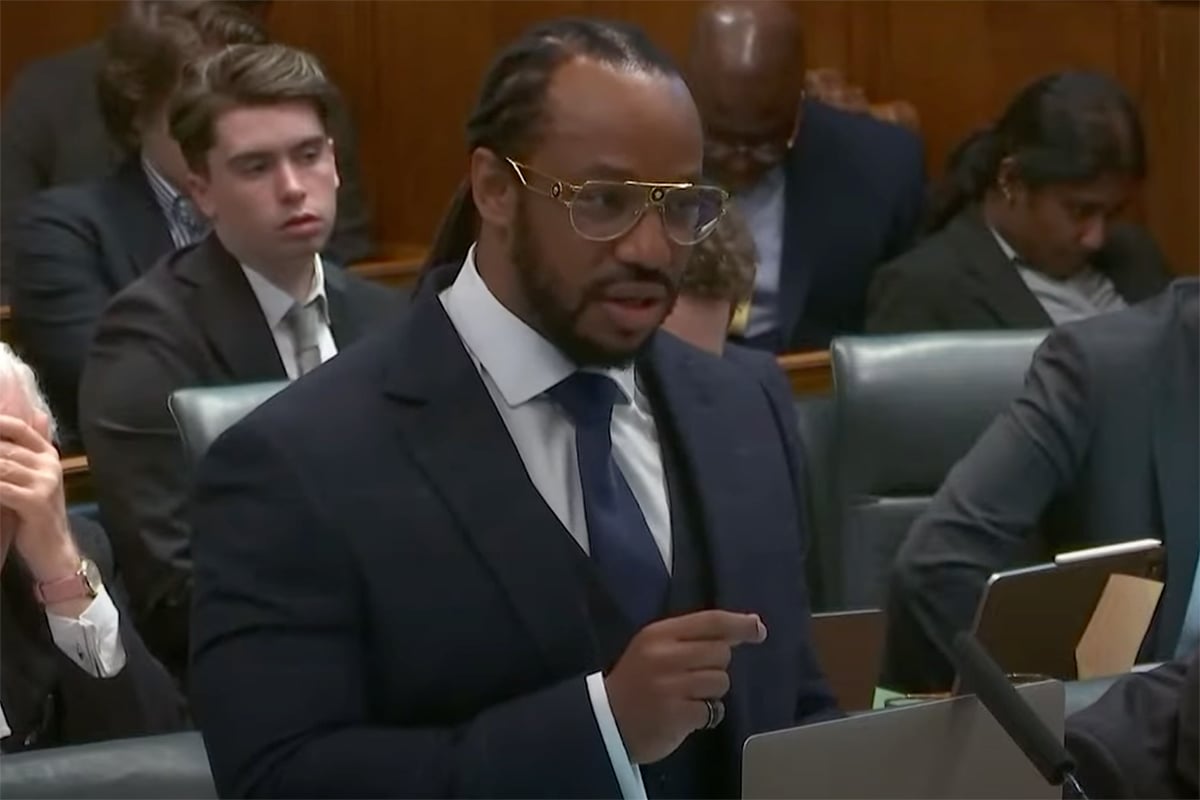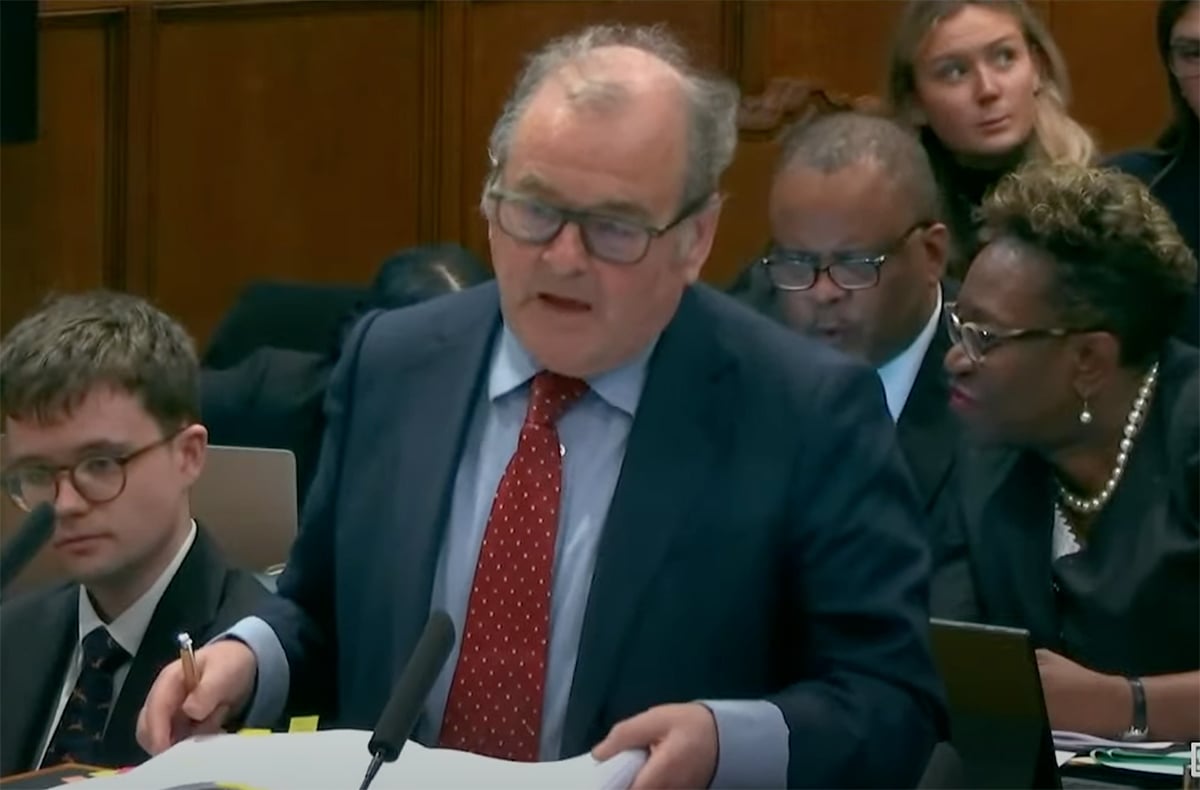Vybz Kartel’s Final Appeal: Privy Council Sets Judgment Date For March 14

The Judicial Committee of the Privy Council (JCPC) will rule on Dancehall star Vybz Kartel and three other men’s final appeal on Thursday (March 14) at 11 AM (Jamaica Time), DancehallMag has learned.
In March 2014, Kartel, whose real name is Adidja Palmer, My Life artist Shawn ‘Storm’ Campbell, and two associates, Kahira Jones and Andre ‘Mad Suss’ St. John, were all found guilty of killing Clive ‘Lizard’ Williams. While Lizard’s body was never found, the conviction hinged on telecommunication and cellphone evidence, including a text message from Kartel’s phone stating the victim had been “chopped up fine fine,” and the sole eyewitness, Lamar “Wee” Chow, who testified that Lizard was murdered at Kartel’s home in Havendale, St Andrew, after he and the deceased were summoned there over missing guns.
After their conviction was largely upheld by the Jamaica Court Of Appeal in April 2020, the four men moved to the Privy Council, the final court of appeal for Jamaica, seeking to overturn their life sentences that ranged from 22 to 32 years before parole.
On Thursday, the Privy Council will hand down its judgment on three key issues in the case:
- Should the trial judge have excluded the telecommunications evidence relied on by the prosecution?
- How should the judge have handled the allegations that there were attempts to bribe members of the jury during the trial? Should the jury have been discharged?
- Was the judge wrong to invite the jury to reach a verdict late in the day, given the special circumstances of the case?
Justices were mainly concerned with Jury tampering
A panel of five justices—Lord Reed, Lord Lloyd-Jones, Lord Briggs, Lord Burrows, and Lady Simler—had mainly focused on the question of jury tampering during the hearings held on February 14 and 15.
Kartel’s attorney, Isat Buchanan, had argued that juror Livingston Caine — who was convicted of attempting to pervert the course of justice by offering a JMD $500,000 bribe to the jury forewoman—should have been discharged from the jury as he was tainted, and that knowledge of the bribe offer might have influenced the other jurors to return a guilty verdict.
“In relation to the jury, there has never been in modern common law where a juror we know for a fact is poisoned, is tainted, was allowed to remain on a jury, to bring a verdict, simply because the legislation would have prevented him from being discharged where it is clear, on its face, that that juror ought to have been moved to protect the fair trial right,” Buchanan had said.
Jamaica’s Jury Act requires at least 11 jurors for a properly constituted jury in murder trials. A female juror had been discharged earlier in the case, after she expressed fear for her son, who was, at the time, being held in the same prison as the defendants. So, discharging Caine would have meant that the trial could not continue with just 10 jurors.
King’s Counsel Peter Knox, who appeared on behalf of the prosecution, argued that if the jury tampering attempt had been allowed to derail the trial, then the “whole legal system and jury system could be brought into disrepute.”
He also contended that the judge acted properly by not discharging the juror because it would not have been appropriate to investigate Caine at that time. Knox said that the judge was confident that “none of the ten jurors had taken a bribe” and further asserted that jurors are bound to carry out a public duty.
He also argued that the judge’s actions and instructions minimized bias, making it essential to consider the overall conduct and outcome of the trial, including the acquittal of a fifth accused, Shane Williams, and the overwhelming evidence against the other four men. Knox highlighted the jury’s ability to discern the guilt of different defendants, which, he said, demonstrated their capability to judge fairly based on facts despite the bribery attempt.
However, Hugh Southey, another lawyer for the co-appellants, challenged the prosecution’s assertion that there was no risk of the jury being infected by bias.
“Conscious bias is a very real problem here,” Southey said.
“Even if a jury says to themselves, I understand that this looks pretty bad, that there a bribe was offered to us, but I understand what the judge has said, I need to put that out of my mind, that is very difficult. As [a] matter of human nature, to stop yourself being influenced by that, that is how unconscious bias works,” he explained.
Prosecution wants a re-trial if convictions are overturned
The Privy Council aims for a majority decision, not necessarily unanimity. One justice will draft the primary judgment, reflecting the majority’s view, while others may write concurring or dissenting opinions. In the event that the court orders the convictions overturned, the lawyers for the prosecution have asked for a retrial.
However, Southey argued that a fair trial would now be impossible due to the high-profile nature of the matter. “Those difficulties have not diminished; they have become greater because of the passage of time. This is something that is now high profile. In our submission, that submission supports our argument that there is no point remitting this…because a fair trial is now very difficult, impossible, we would submit,” he said.
Buchanan, likewise, argued that the conviction of the four men should be quashed. “There is no cure, no proviso, or no thought of a retrial or a second bite of the apple where the unfair trial right was breached in manner that it did,” he had said.


